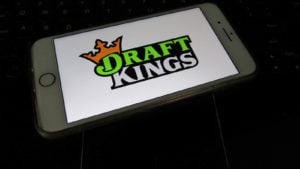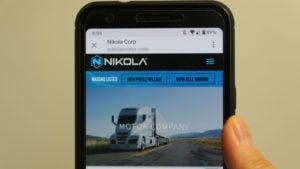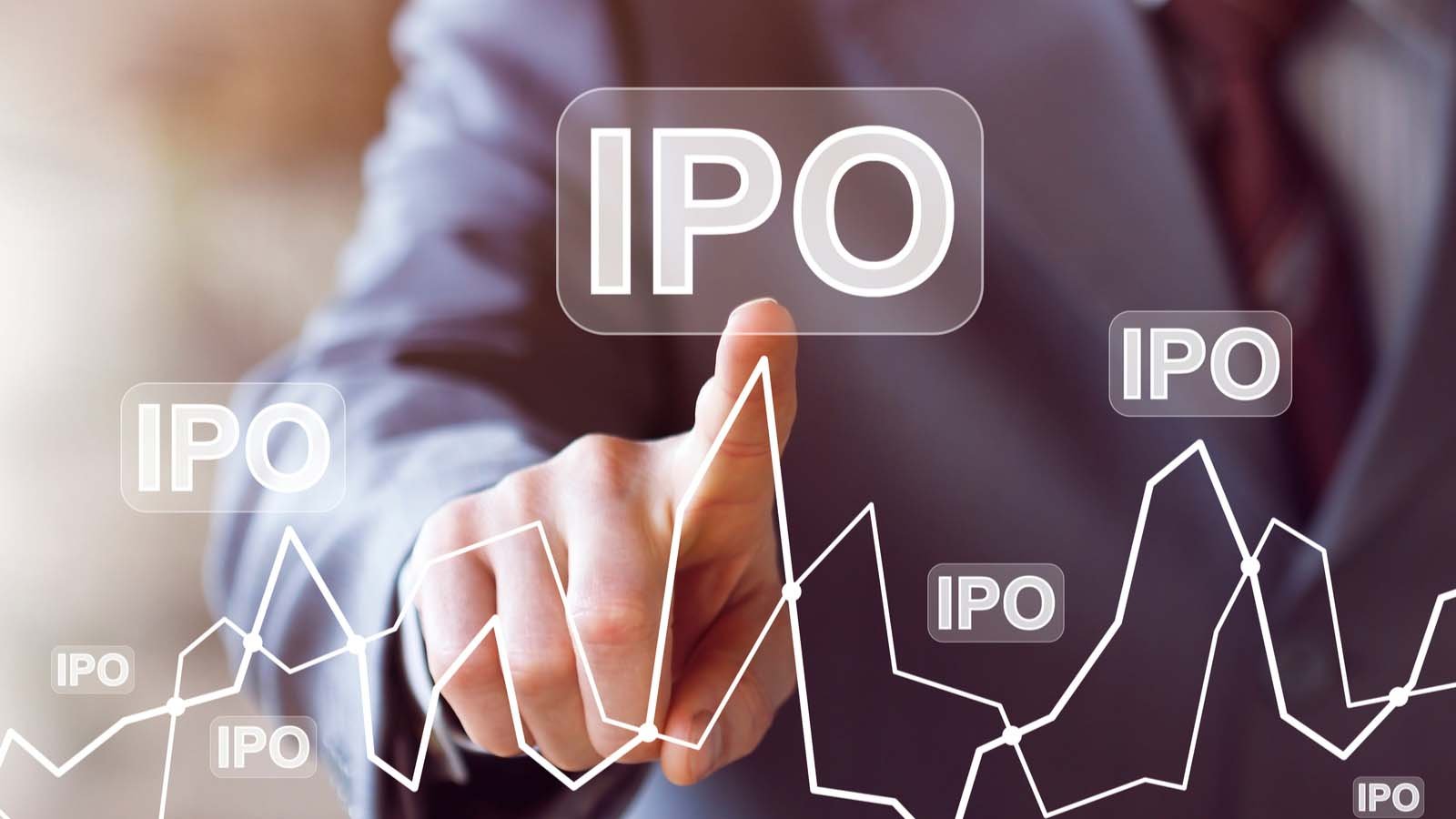Editor’s Note: “10 SPAC IPO Stocks to Buy as They Grow in Popularity” was previously published in March 2020. It has since been updated to include the most relevant information available.
Not many investors are familiar with special purpose acquisition companies (SPACs), a special breed of IPO stocks that enable well-connected sponsors to raise hundreds of millions of dollars from the public markets.
Often referred to as blank-check companies or blind pools, the sponsors have a time limit to acquire an operating business from the day the IPO funds are raised. That business is then combined with the SPAC through a reverse merger, turning the private company into a public one.
SPACs first came into being in the 1980s, used by penny-stock promoters, to make millions off unsuspecting investors. As a result, the federal government introduced the Penny Stock Reform Act of 1990, which took steps to stop these fraudulent activities.
Later in the decade, financier David Nussbaum reintroduced SPACs, focusing on legitimizing this form of IPO stocks through the use of specific requirements such as putting the funds raised in escrow and putting a time limit on the amount of time to make a qualifying acquisition.
In 2019, there were 59 SPAC IPOs that collectively raised $13.6 billion. Year to date, a total of 55 SPACs have raised $22.5 billion.
Here are 10 SPAC IPO stocks to buy. Some have already found a target. Others are just beginning to look.
- Pershing Square Tontine Holdings (NYSE:PSTHU)
- Virgin Galactic (NYSE:SPCE)
- Whole Earth Brands (NASDAQ:FREE)
- Repay Holdings (NASDAQ:RPAY)
- DraftKings (NASDAQ:DKNG)
- Flying Eagle Acquisition (NYSE:FEAC)
- Conyers Park II Acquisition (NASDAQ:CPAA)
- Social Capital Hedosophia Holdings Corp. III (NYSE:IPOC)
- Nikola (NASDAQ:NKLA)
- Churchill Capital Corp. IV (NYSE:CCIVU)
IPO Stocks: Pershing Square Tontine Holdings (PSTHU)

Nothing Bill Ackman does is pint-sized, so it doesn’t come as a surprise that when he finally decided to enter the SPAC fray, the billionaire investor would do it in a big way.
On July 21, Pershing Square Tontine Holdings sold 200 million units at $20 each, raising $4 billion. That made it the largest SPAC in history. Initially, the SPAC was set to raise $3 billion, but it was increased to meet the tremendous demand.
According to Yahoo Finance, Ackman wants to find a mature unicorn that has scale, market share and a nice edge against its competition.
“Our thesis is by having a $5 billion cash pile in a public company; it’s our own version of a unicorn. It’s a one-of-a-kind entity,” Ackman told Yahoo Finance. “So, we’re looking to marry a unicorn. So we’re prettying ourselves up for the most attractive possible partner.”
Ackman did another SPAC in 2012, which resulted in Burger King going public. That has turned out pretty well.
Virgin Galactic (SPCE)

As far as SPAC IPO stocks go, the merger between Social Capital Hedosophia and Richard Branson’s space travel company, Virgin Galactic, was as a big deal.
The merger was first announced in July 2019. The combination created a company with an enterprise value of $1.5 billion. Branson’s Virgin Group owned 58.7% of the business, and Social Capital’s shareholders owned the rest. Due to pandemic-related problems at Branson’s Virgin Atlantic Airways, the billionaire’s had to reduce his position in Virgin Galactic to 36.7%.
However, by a wide margin, Virgin Group is still the largest shareholder.
I believe that Virgin Galactic could be the next Tesla (NASDAQ:TSLA). Although it plans to develop a large space tourism business, the commercial applications of space flight are tremendous. The company expects its first space flight to happen later this year.
With 8,000 people signed up ready to spend $250,000 to go into space — and many more likely to come out of the woodwork once a successful flight is in the books — the future revenue potential is massive.
Recently, Virgin Galactic announced that it had hired a long-time Disney (NYSE:DIS) executive as its CEO. Commercial success is getting closer by the day.
IPO Stocks: Whole Earth Brands (FREE)

On Dec. 20, 2019, Act II Global Acquisition announced that it was combining with Merisant Company and MAFCO Worldwide LLC.
Both were owned by MacAndrews & Forbes, the holding company of billionaire Ronald O. Perelman.
Merisant specializes in low-calorie sugar substitutes, while MAFCO is the world’s leading maker of natural licorice products.
The two businesses and Act II completed their combination on June 25. They operate as Whole Earth Brands under the Whole Earth brand of sweeteners.
The chairman of Whole Earth Brands is Irwin Simon, the current CEO of Aphria (NYSE:APHA), a Canadian cannabis company. Before Aphria, Simon co-founded and was CEO of Hain Celestial Group (NASDAQ:HAIN), one of the world’s largest natural and organic foods company.
Simon’s involvement makes this an exciting company to watch.
Repay Holdings (RPAY)

Repay Holdings merged in July 2019 with Thunder Bridge Acquisition, a SPAC that raised $225 million in June 2018.
Repay operates a proprietary, integrated payment technology platform that improves the customer experience while simplifying the process for merchants. The management team, including co-founder and CEO John Morris, stayed on to run the company. In 2018, Repay processed approximately $7 billion of payment volume for personal loans, car loans and receivables management.
Thunder Bridge paid $581 million for Repay. It is led by Gary Simanson, who previously founded Endeavor Capital Management, a New York-based boutique private equity firm.
Repay stock has gained 126% in the year since its SPAC merger was completed.
IPO Stocks: DraftKings (DKNG)

In late December 2019, Diamond Eagle Acquisition Corporation announced it would combine with DraftKings and SBTech to form a $3.3 billion vertically integrated sports betting and online gaming company.
The combination was completed on April 24. Operating as DraftKings, the three-way merger came more than two years after DraftKings and FanDuel canceled their merger over concerns from the Federal Trade Commission.
For those needing a program to tell who’s who, Diamond Eagle Acquisition is the fifth SPAC for Hollywood executives Harry Sloan and Jeff Sagansky.
This particular version raised $400 million in May 2019. Since 2011, the five SPACs have raised a total of $1.7 billion.
As I said in early June, DraftKing’s success — its stock has gained 80% in the last three months — makes it the poster child for SPACs.
Flying Eagle Acquisition (FEAC)

As I stated in the previous slide, Harry Sloan and Jeff Sagansky have a track record second to none in the world of SPACs.
On March 5, the duo sold 60 million units of Flying Eagle Acquisition at $10 per unit. Five days later, the underwriters exercised their 15% over-allotment and bought another 9 million units at $10 per unit. In addition to one share of Class A common stock, investors got one-fourth of one warrant, with each warrant entitling the investor to buy another share for $11.50. The shares began trading on March 6.
The sixth SPAC from the duo, it raised gross proceeds of $690 million. The pair aren’t limiting their search to one particular industry. The net funds raised, after subtracting for $800,000 in offering expenses and initial working capital of $450,000, will be kept in a trust account bearing interest at 1.5% annually.
If an acquisition isn’t found within 24 months, the funds in the trust account would be returned to investors. But don’t worry. The chances are excellent that Sloan and Sagansky will find a target.
IPO Stocks: Conyers Park II Acquisition (CPAA)

On July 17, 2019, the Conyers Park II Acquisition sold 40 million units at $10 per unit. Also, underwriters exercised part of their over-allotment, buying an additional 5 million units at $10 per unit, raising gross proceeds of $450 million.
Each unit included one Class A common share (symbol CPAA on the Nasdaq Exchange) and one-fourth of one warrant with each warrant (symbol CPAAW on the Nasdaq Exchange), entitling the investor to buy another share for $11.50.
Like a lot of SPACs, Conyers Park is sponsored by Centreview Capital, a private equity firm that specializes in consumer and technology companies. In July 2016, Centreview launched Conyers Park Acquisition Corporation, raising gross proceeds of $402.5 million.
Less than a year later, it combined with Atkins Nutritionals, renaming the business Simply Good Foods (NASDAQ:SMPL). Since the merger in July 2017, Simply Good Foods’ stock has doubled in value.
While it hasn’t identified a specific area to invest, it intends to focus on the consumer sector. CPAA has 12 more months in which to find an acquisition. Something tells me it will be successful.
Social Capital Hedosophia Holdings III (IPOC)

I’ve selected the third SPAC from the partnership between Social Capital’s Chamath Palihapitiya and Ian Osborne, the CEO of Hedosophia, because it is almost double the size of their second SPAC. Their first SPAC became Virgin Galactic, as I mentioned previously.
IPOC sold 72 million shares on April 21 at $10 a share. It plans to acquire a technology company that’s based outside the U.S.
Who are Chamath Palihapitiya and Ian Osborne?
Well, Palihapitiya became better known in the investment community after railing against the airlines’ bailouts in a now-infamous CNBC interview in April.
“The people that get wiped out are the speculators that own the unsecured tranches of debt or the folks that own the equity,” the billionaire stated in the interview. “And by the way, those are the rules of the game. That’s right. Because these are the people who purport to be the most sophisticated investors in the world. They deserve to get wiped out.”
Some might not like such candor, but I find it refreshing. I have no doubt that’s why Richard Branson felt Palihapitiya’s SPAC was the right investment vehicle to take Virgin Galactic public.
I’m sure the duo will find an excellent business combination before the clock runs out.
IPO Stocks: Nikola (NKLA)

If you bought Nikola in late June and still hold the stock, the company that intends to commercialize both battery-electric pick-up trucks and hydrogen-fueled commercial semi-trucks has lost more than half its value in a month.
However, if you are one of the investors of VectorIQ Acquisition Corporation, which sold 20 million shares of its stock on May 15, 2018, and then merged with Nikola on June 3, you’re sitting on a 212% return. As a result, there’s probably a big difference in your attitude versus the person who bought last month.
I’m not convinced that Nikola’s going to be able to duplicate the success of Tesla and Elon Musk, but when you’re playing a baseball game that’s only in the first or second inning of a nine-inning game, there’s plenty of good things that can happen.
There’s no doubt in my mind that in ten years, electric vehicles will be as conventional as Americans drinking beer or iced tea on a hot summer’s night.
But before we get there, Nikola is going to need a lot of money, incredible execution by its management team and even more luck. That is a problematic trio to align at the best of times. During Covid-19, it’s virtually impossible.
Nonetheless, the SPAC process allowed it to go public quickly, something a traditional IPO doesn’t provide. It’s a big reason why people like Bill Ackman are choosing them.
Churchill Capital Corp. IV (CCIVU)

On July 14, Renaissance Capital, a company dedicated to IPOs, published an article about the fourth SPAC in ex-Citibank executive Michael Klein’s little empire. It reported that the company filed for a $1 billion IPO.
Less than two weeks later, Renaissance reported that Klein had increased the offering by 50% to $1.5 billion, selling 150 million units at $10 a pop.
“The company plans to target industries with compelling long-term growth prospects, opportunities to affect valuation improvements, attractive competitive dynamics, and consolidation opportunities,” Renaissance reported. “It plans to target businesses with competitive advantages, significant streams of recurring revenue, opportunity for operational improvement, attractive steady-state margins, high incremental margins, and attractive free cash flow characteristics.”
Who wouldn’t want to buy a business like that? I sure would. Of course, I don’t have a pedigree like Klein’s.
SPACs have become all about the jockey and less about the horse. Let’s hope Klein doesn’t come up lame.
Will Ashworth has written about investments full-time since 2008. Publications where he’s appeared include InvestorPlace, The Motley Fool Canada, Investopedia, Kiplinger, and several others in both the U.S. and Canada. He particularly enjoys creating model portfolios that stand the test of time. He lives in Halifax, Nova Scotia. At the time of this writing Will Ashworth did not hold a position in any of the aforementioned securities.
